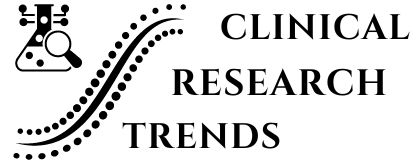The Impact of Nutrigenomics on Clinical Trials
In recent years, the field of nutrigenomics has emerged as a pivotal area of research, exploring the intricate interplay between nutrition and genetics. Nutrigenomics seeks to understand how our dietary choices affect gene expression and how genetic variations influence our response to different nutrients. This burgeoning field has significant implications for personalized medicine, offering the potential for tailored dietary recommendations that can enhance individual health outcomes. As clinical trials continue to evolve, the integration of nutrigenomics is becoming increasingly relevant, promising to revolutionize our approach to diet and disease prevention.
Nutrigenomics is the study of how nutrition and genes interact to influence health and disease. At its core, nutrigenomics seeks to unravel the complex biological processes that govern how our bodies respond to various nutrients based on our unique genetic makeup. This field examines how certain foods can activate or deactivate genes, thereby influencing metabolic pathways and health outcomes. For example, some nutrients may enhance the expression of genes involved in antioxidant defense, while others might suppress genes linked to inflammation.
Understanding these gene-diet interactions is crucial because they underscore the importance of personalized nutrition. Unlike traditional dietary guidelines, which offer broad recommendations, nutrigenomics recognizes that individuals may respond differently to the same diet due to genetic variations. These differences can affect everything from nutrient absorption and metabolism to disease susceptibility, making it essential to consider genetic factors when developing dietary interventions.
Relevance to Clinical Trials
Clinical trials are the cornerstone of medical research, providing the rigorous evidence needed to evaluate the safety and efficacy of new treatments. Traditionally, these trials have focused on pharmacological interventions, but there is growing recognition of the role of nutrition in health. This shift has led to the inclusion of dietary components in clinical trials, with a particular emphasis on how individual genetic differences may influence responses to nutritional interventions.
Integrating nutrigenomics into clinical trials represents a significant advancement in personalized medicine. By considering genetic variations, researchers can better understand why certain individuals respond positively to a particular diet while others do not. This knowledge can lead to more precise dietary recommendations, improving the overall effectiveness of dietary interventions. Additionally, it can help identify potential adverse reactions to certain nutrients, thereby enhancing the safety profile of dietary recommendations.
Basics of Nutrigenomics
How Nutrigenomics Works
The foundation of nutrigenomics lies in the concept of gene-diet interactions. Genes carry the instructions for producing proteins, which perform essential functions in the body. Nutrients, in turn, can influence gene expression—the process by which these instructions are carried out. This influence can occur through various mechanisms, including the modification of DNA (epigenetic changes), the regulation of transcription factors, and the activation of cellular signaling pathways.
For example, omega-3 fatty acids, found in fish oil, can activate genes involved in anti-inflammatory responses. On the other hand, excessive intake of saturated fats may activate genes associated with inflammation and insulin resistance. These interactions highlight the dual role of nutrients: they can be both beneficial and harmful, depending on the context and the individual's genetic makeup.
Another key aspect of nutrigenomics is understanding how genetic variations, known as polymorphisms, affect an individual's response to nutrients. For instance, variations in the MTHFR gene can influence how well a person metabolizes folate, a B vitamin. Individuals with certain MTHFR polymorphisms may have higher requirements for folate to prevent deficiency-related health issues, such as elevated homocysteine levels, which are associated with cardiovascular disease.
Genetic Variation and Dietary Response
The concept of genetic variation is central to nutrigenomics. Our genetic code consists of approximately 20,000 to 25,000 genes, and within this code are countless variations that make each person unique. These variations can significantly impact how we process nutrients and respond to dietary changes.
One well-known example is the lactase persistence gene, which determines whether an individual can digest lactose, the sugar found in milk. In many populations, a genetic variation allows the continued production of lactase, the enzyme needed to digest lactose, into adulthood. However, those without this variation may experience lactose intolerance, leading to symptoms like bloating and discomfort when consuming dairy products.
Another example involves the APOE gene, which is associated with cholesterol metabolism. Variants of this gene, particularly the APOE4 variant, are linked to higher cholesterol levels and an increased risk of cardiovascular disease. Individuals with the APOE4 variant may benefit from dietary interventions that focus on reducing saturated fat intake and increasing the consumption of omega-3 fatty acids.
These examples illustrate how genetic variations can influence dietary requirements and health outcomes. Understanding these variations allows for more personalized dietary recommendations that cater to an individual's unique genetic profile, ultimately improving health and reducing the risk of disease.
Integration of Nutrigenomics into Clinical Trials
Current Approaches in Clinical Trials
As the field of nutrigenomics advances, its integration into clinical trials is becoming more common. These trials aim to explore how genetic differences can influence the outcomes of dietary interventions, providing insights that can lead to more effective and personalized nutrition strategies.
One approach used in these trials is genotyping, which involves analyzing an individual's genetic makeup to identify specific polymorphisms that may affect nutrient metabolism. By understanding these genetic differences, researchers can design studies that investigate how various diets impact participants with different genetic profiles. For example, a trial might examine how individuals with different MTHFR genotypes respond to varying levels of folate supplementation.
Another approach is the use of biomarkers, which are measurable indicators of biological processes. In nutrigenomics, biomarkers can include levels of specific nutrients in the blood, gene expression patterns, or metabolites. By monitoring these biomarkers, researchers can assess the biological effects of dietary interventions and how they vary among individuals with different genetic backgrounds.
Benefits of Including Nutrigenomics in Trials
The inclusion of nutrigenomics in clinical trials offers several key benefits. Firstly, it enables the development of personalized dietary interventions tailored to an individual's genetic profile. This personalization can enhance the effectiveness of dietary recommendations, as they are more likely to align with an individual's unique metabolic needs. For example, a person with a genetic predisposition to high cholesterol might benefit from a diet rich in omega-3 fatty acids, which are known to have cholesterol-lowering effects.
Secondly, nutrigenomics can improve our understanding of the role of diet in disease prevention and management. By identifying specific gene-diet interactions, researchers can elucidate the mechanisms through which certain nutrients influence health. This knowledge can inform public health guidelines and help individuals make dietary choices that reduce their risk of chronic diseases.
Moreover, nutrigenomics can identify individuals who may be at risk of adverse reactions to certain nutrients. For instance, people with a particular genetic variation in the HFE gene are at increased risk of developing hemochromatosis, a condition characterized by excessive iron accumulation. These individuals can benefit from personalized dietary advice to limit iron intake and avoid complications.
Challenges and Considerations
Despite the promising potential of nutrigenomics, several challenges must be addressed to fully integrate this field into clinical trials. One major challenge is the complexity of genetic data and the need for sophisticated analytical tools to interpret it. The human genome is vast, and while certain polymorphisms are well-studied, many others remain poorly understood. This complexity requires careful study design and interpretation of results to avoid oversimplification or misinterpretation of genetic influences.
Another challenge is the ethical and privacy concerns associated with genetic testing. Genetic data is highly sensitive, and there are legitimate concerns about how this information is used and protected. Participants in nutrigenomics studies must be fully informed about the potential risks and benefits of genetic testing, and robust measures must be in place to protect their privacy.
Additionally, the cost of genetic testing and analysis can be a barrier to the widespread adoption of nutrigenomics in clinical practice. While the cost of sequencing has decreased significantly in recent years, it remains a limiting factor for many individuals and healthcare systems. Ensuring equitable access to personalized nutrition services is an important consideration for the future of this field.
Potential Impact on Health Outcomes
Personalized Nutrition and Health
The ultimate goal of nutrigenomics is to provide personalized dietary recommendations that optimize health and well-being. By tailoring nutrition advice to an individual's genetic profile, nutrigenomics has the potential to enhance the effectiveness of dietary interventions and improve health outcomes.
Personalized nutrition can help prevent or manage a wide range of chronic diseases. For example, individuals with a genetic predisposition to type 2 diabetes may benefit from a diet low in refined carbohydrates and high in fiber, which can help regulate blood sugar levels. Similarly, those with genetic variations that affect lipid metabolism may benefit from diets rich in healthy fats and low in trans fats to manage cholesterol levels and reduce cardiovascular risk.
In addition to disease prevention, personalized nutrition can also improve overall well-being and quality of life. For instance, individuals with genetic variations that affect neurotransmitter synthesis may respond differently to certain nutrients, such as omega-3 fatty acids, which play a role in brain health. Tailoring dietary recommendations to support mental health can lead to better mood regulation and cognitive function.
Case Studies and Evidence
Numerous studies have demonstrated the potential of personalized nutrition based on genetic data. One notable example is the PREDICT study, which investigated the impact of genetics, microbiome, and lifestyle factors on individual responses to food. The study found significant variability in postprandial blood sugar and fat levels among participants, even when consuming the same meal. This variability was influenced by genetic factors, among others, highlighting the need for personalized dietary recommendations.
Another example is the Nutrigenomics and Metabolic Syndrome (NUGENOB) study, which explored the role of genetic variation in obesity and metabolic syndrome. The study found that certain genetic polymorphisms were associated with differential responses to dietary fat and carbohydrate intake, influencing weight loss and metabolic health outcomes. These findings underscore the importance of considering genetic factors in dietary interventions for weight management.
These and other studies provide compelling evidence for the benefits of personalized nutrition. They demonstrate that tailoring dietary recommendations based on genetic profiles can lead to more effective and targeted interventions, ultimately improving health outcomes.
Future Prospects
The future of nutrigenomics is promising, with ongoing advancements in genetic testing technologies and computational biology. As our understanding of the human genome deepens, we can expect to see more precise and comprehensive genetic analyses that account for a broader range of genetic variations.
Emerging technologies, such as whole-genome sequencing and CRISPR gene editing, hold great potential for expanding our knowledge of gene-diet interactions. These technologies can help identify previously unknown genetic variants that influence nutrient metabolism and health. Additionally, advances in bioinformatics and artificial intelligence are improving our ability to analyze and interpret complex genetic data, paving the way for more sophisticated and personalized dietary recommendations.
The integration of nutrigenomics into clinical practice also offers new opportunities for preventive healthcare. By identifying individuals at risk of certain diseases based on their genetic profile, healthcare providers can offer proactive dietary advice and interventions. This preventive approach can help reduce the burden of chronic diseases and improve population health.
Notable Labs and the Impact of Nutrigenomics on Clinical Trials
At Notable Labs, the transformative potential of nutrigenomics—a cutting-edge field exploring the intricate relationship between nutrition and genetics—is recognized and embraced. This innovative area of research delves into how dietary choices can affect gene expression and how genetic variations influence responses to different nutrients. By integrating nutrigenomics into clinical trials, Notable Labs aims to uncover personalized dietary strategies that optimize health outcomes and prevent diseases.
Nutrigenomics studies how genes interact with the foods people consume, impacting their body's biological processes. This understanding enables the creation of tailored dietary recommendations, considering each individual's unique genetic makeup. Such personalization represents a significant leap from traditional dietary guidelines, which often overlook genetic diversity and its impact on nutrient metabolism and health.
The relevance of nutrigenomics to clinical trials lies in its potential to revolutionize personalized medicine. By incorporating genetic data, researchers can better understand why individuals respond differently to the same diet, leading to more effective and safe dietary interventions. This approach not only enhances the efficacy of clinical trials but also helps in identifying potential adverse reactions to specific nutrients.
At Notable Labs, the team is at the forefront of this scientific evolution, leveraging the power of nutrigenomics to advance clinical research. Their focus on personalized nutrition and the integration of genetic insights into dietary planning hold the promise of significantly improving patient outcomes and contributing to the broader field of preventive healthcare. As they continue to explore the potential of nutrigenomics, Notable Labs remains committed to addressing the ethical, privacy, and access challenges to ensure that the benefits of personalized nutrition are available to all.
Conclusion
Summary of Key Points
Nutrigenomics represents a significant advancement in our understanding of the relationship between diet and genetics. By studying gene-diet interactions, nutrigenomics offers the potential for personalized nutrition that can optimize health outcomes and prevent chronic diseases. The integration of nutrigenomics into clinical trials is an important step toward realizing this potential, allowing researchers to explore how genetic variations influence dietary responses and health outcomes.
The future of nutrigenomics holds great promise, but it also presents challenges that must be addressed. Ongoing research and collaboration between nutritionists, geneticists, and healthcare professionals are essential to advancing this field and translating findings into practical applications. As genetic testing becomes more accessible and affordable, the potential for personalized nutrition to transform healthcare is becoming increasingly tangible.
Embracing personalized nutrition as a standard practice in clinical settings requires a commitment to ethical considerations, data privacy, and equitable access. By addressing these challenges, we can ensure that the benefits of nutrigenomics are realized for all individuals, paving the way for a future where dietary recommendations are truly tailored to each person's unique genetic makeup.










